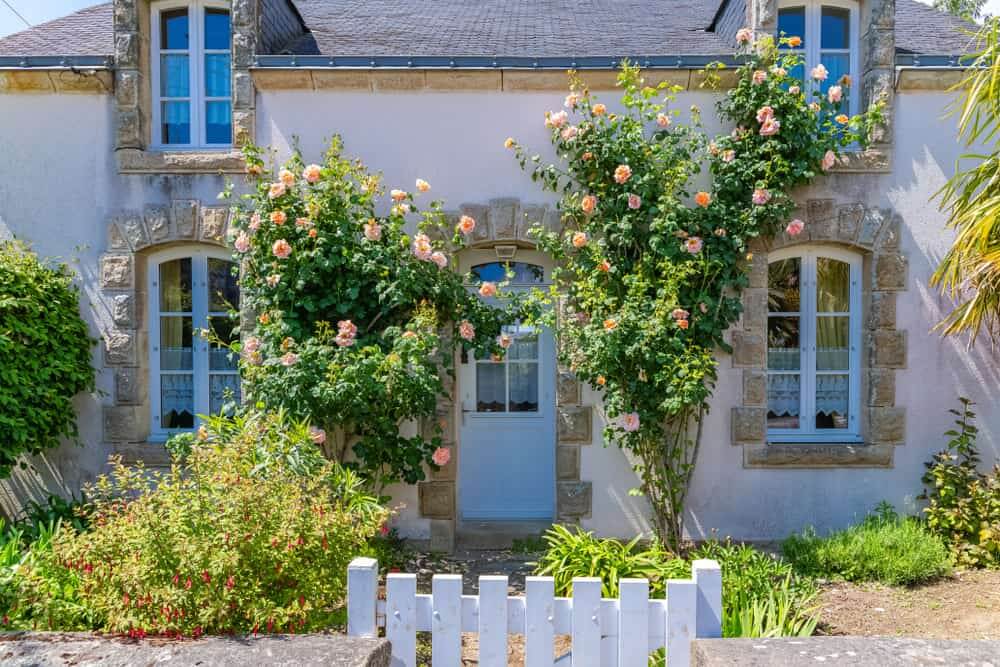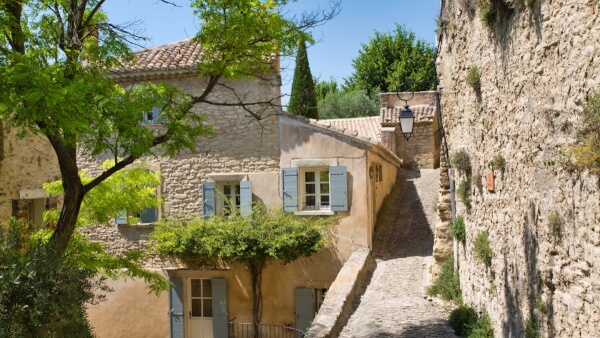Expat health insurance for France: A complete guide
Learn everything you need to know about expat health insurance for France, from finding the best providers to accessing healthcare and managing costs.

Disclaimer: The contents of this article is for informational purposes only and does not constitute legal or tax advice. You are solely responsible for any tax or other legal liabilities arising from the purchase/sale of foreign property. Decisions to purchase foreign property and their procedure should be made after thorough research, consultation and verification from a qualified financial and legal advisor.
Own a holiday home or investment property in France, and are thinking of selling up? Or perhaps you live in France and plan to move to a different area, or even move back to the UK.
Whichever is the case, read on. We’ve put together a complete guide to selling property in France, covering everything you need to know. This includes seller’s fees and taxes, legal requirements and a step-by-step guide to the selling process.
We’ll also show you a low-cost, transparent way to transfer the proceeds of your property sale back to the UK - using the Wise account from the money services provider Wise.
It lets you spend, hold and convert money in 40+ currencies and make secure transfers to 140+ countries for low fees* and great mid-market exchange rates. Every transfer is trackable and you’ll get dedicated support when making large amount transfers.
Get expert support for your large transfer 📞
First time selling a property in France? You’ll need to get to grips with how the process works. You may have some experience of it from buying property in France, but it can be different from the seller’s perspective.
Let’s run through the main steps, so you know exactly what to expect.
It’s not obligatory to use an estate agent in France. Estate agent fees can be quite high (more on that later), so you can potentially save money by selling your home yourself. You can make use of online listing sites and real estate portals.
However, you may want to take advantage of the local knowledge and specialist expertise of an estate agent. They’ll also handle viewings, some negotiations and other key tasks that may not be possible if you don’t actually live in France while selling your property.
If you do want to use a property agent (agent immobiliers), the best way to find one is a personal recommendation from a friend or family member. Otherwise, find one that is a member of a professional association such as the FNAIM, NPI or UNPI. In France, all agents immobiliers have to be licensed, insured and hold a carte professionnelle.1
One of the more onerous parts of selling property in France are the statutory surveys and checks you need to carry out.
These are known as the Dossier de Diagnostic Technique (DDT). The DDT covers a full range of tests, including:2
All of the relevant DDT tests need to be carried out before the property is sold, although they often happen once an offer has been made and an initial contract signed. The only exception is the energy efficiency survey - the Diagnostic de Performance Énergétique (DPE) - which must be carried out before the property is marketed.2
All of these surveys are the responsibility of the seller, and you must cover the costs of them too.
Now it’s time to get your property onto the market and start attracting buyers. Your estate agent should handle most if not all of the advertising activity, but private sellers will need to make sure they list their property in as many places as possible.
Here are some of the most popular real estate websites in France:
The notary (notaire) is a vital part of French property sales. They act as the conveyancing solicitor, making sure all the paperwork and procedures are done according to the letter of the law.2
The notaire usually acts for both buyer and seller. You can also choose to get your own property solicitor to advise you, but the state-appointed notary will still be an integral part of the process.
Be aware though that the notaire may only speak French, so you may need the services of a translator or an English-speaking solicitor to assist you.
Once you’ve accepted an offer from a buyer, an agreement to purchase (Compromis de Vente) will be drawn up. This is done by the notary.
When the contracts are signed, the buyer pays the deposit, to be held by the notary. This is usually around 5% to 10% of the total sale price.3
As the seller, you have a legal requirement to disclose all hidden defects, easements and restrictions, tenancies, licences and planning consents related to the property.
The final step in the selling process is to arrange a meeting (at the notary’s office in France) to sign the final purchase document, the Acte de Vente. All parties should be present, and once the agreement is signed - you’ll hand over the keys and the legal ownership of the property.
The notaire will arrange for the balance of funds to be paid to you. You might want to do some preparations for this, such as opening a local account. If you’re not in the country, you’ll need to research the best and most cost-effective way to receive large sums from abroad.
Whether or not it’s the right time to sell your French property will depend on your circumstances. This includes how much you originally paid for the property and how much prices have risen in the region.
But generally speaking - it could potentially be a good time to sell. After a difficult few years, the French property market is showing slight signs of recovery. Prices for city properties rose 0.39% in the first quarter of 2025, which is the first annual price increase since mid-2023.4
Despite this, uncertainty still remains as to which way the market will go - whether it continues this trend or dips back to 2022-2024 levels.4 You may want to speak to a property expert to work out if now is a good time to sell, or play it safe and wait until prices and sales pick up.
The time it takes to sell a home in France can vary. Although unfortunately, it is likely to take longer than you may expect due to the weight of bureaucracy and paperwork required.
But on average, it takes around 83 days to sell a property in France (according to figures from February 2025).5
The exact time though may depend on the complexity of the transaction as well as the region - with properties in Toulouse typically selling the quickest, and properties in Nantes the slowest.5
It’s strongly recommended to appoint a solicitor specialising in real estate or conveyancing work in France. They can draw up and translate documents, check over conditions of contracts, give you advice about the selling process and so much more.
This could make your property sale go more smoothly and crucially, help you avoid a costly mistake.
It’s not a legal or mandatory requirement to have a French bank account to sell property in the country - although you may find it easier with one.
You’ll need to get in touch with banks in France to find out what the requirements are and if you’re eligible for an account.
You may be able to use an international account for your property sale, or even your current account with a UK bank.
Another thing to note is that international transfers could get expensive, especially if the provider adds a margin to the exchange rate to convert your euros to British pounds.
Consider checking out Wise to handle your international large transfers with mid-market exchange rates and low, transparent fees.
Now we come to the important question - how much will it actually cost you to sell a property in France? Below, we’ll run through the main fees and taxes you need to know about:
| Tax/fee name | Rate/fee |
|---|---|
| Real estate agent fees | Around 6-10% of the sale price2 |
| Legal fees | Varies |
| DDT diagnostic surveys | Between €200 and €600 EUR2 |
| Hiring a fiscal representative (if needed) | 0.4% to 1%2 |
| Capital gains tax (on profit) | A flat rate of 19%, plus an extra 17.2% in social charges6 |
While it varies - and estate agent fees are usually negotiable - you can expect to pay your real estate agent commission of around 6% to 10% of the total sale price.²
It’s always recommended to use a solicitor or conveyancer when buying or selling property in France. The cost of this will vary, depending on where you are in the country and what services you use - so you’ll need to get some quotes.
The good news though is that in France, the notary fees are always paid by the buyer - so that’s a cost you shouldn’t need to worry about.
As the owner and seller, it’s your responsibility to get the mandatory Dossier de Diagnostic Technique (DDT) surveys carried out on the property. The costs for these will vary depending on which surveys are needed, and you’ll need to get lots of quotes for comparison. But as a very rough guide, you can expect to pay between €200 and €600 EUR.2
One cost you may not have budgeted for is appointing a fiscal representative. This is a legal requirement when selling a property in France for more than €150,000 EUR when you’re a resident of a non-EU or EEA country - such as the UK for example. It won’t apply to you if you live in France permanently. But otherwise, the fee is around 0.4% to 1% of the total sale price.2
When you sell a home in France, you’ll need to pay capital gains tax. Known as impôt sur les plus values in France, this is applied to the profits of selling a property or land.
You’ll have to pay it if the following apply:2
The tax made up of a flat rate of 19%, plus an extra 17.2% in social charges.6 This means you could end up paying a rather hefty 36.2% in plus values on any profits you make from the sale. So, make sure you factor that into your sale costs, as it’s a biggie.
For anyone considering moving to France (or staying there if you’re a temporary resident), it’s useful to know about tax residency and how it relates to property ownership.
Buying, renovating or even building a French property doesn’t automatically make you a tax resident in the country. But how much time you spend living in the property does.
Like many countries, France has something called the 183-day rule to determine tax residency status. You’re considered a tax resident for the year if you spend 183 days or more in France within that year, or if you’re a permanent resident in your French home.7
Once the deal is done, you’ll need to work out the best way to transfer the proceeds from your French property sale.
If you don’t live in France, you’ll need to send the money back home to the UK. Use your bank to do this, and you could lose out to high transfer fees and poor exchange rates.
Luckily though, there’s an alternative solution available. Use Wise to send money between the UK and France and you’ll get mid-market exchange rates and low, transparent fees.
It’s quick, reliable and secure, even to transfer large amounts. Wise uses sophisticated security and anti-fraud measures to protect your money.
And it could save you a bundle compared to using certain banks.
Learn more about sending a large amount transfer with Wise in our video below:
And that’s it - everything you need to know about selling property in France. It’s not necessarily the easiest or cheapest process, thanks to high taxes and the amount of admin involved.
But hopefully after reading this guide, you should have a better grip on how it all works.
With a little preparation and paperwork, you’ll be ready to put your French property on the market. Bonne chance!
Sources used for this article:
1. Properstar - choosing a licensed property agency or professional association in France
2. FrenchEntree - role of the notaire, surveys, fees and CGT
3. Savills - typical deposit amount
4. Global Property Guide - France property market info
5. The Connexion - average time to sell a property in France by area
6. Europe Accountants - CGT rates
7. Blevins Franks - 183 day rule for tax residency
Sources last checked on 03-Sep-2025
*Please see terms of use and product availability for your region or visit Wise fees and pricing for the most up to date pricing and fee information.
This publication is provided for general information purposes and does not constitute legal, tax or other professional advice from Wise Payments Limited or its subsidiaries and its affiliates, and it is not intended as a substitute for obtaining advice from a financial advisor or any other professional.
We make no representations, warranties or guarantees, whether expressed or implied, that the content in the publication is accurate, complete or up to date.

Learn everything you need to know about expat health insurance for France, from finding the best providers to accessing healthcare and managing costs.

Read our guide on the pitfalls of buying property in France and avoid the most common mistakes.

This guide explains French hospital bills including what UK visitors and expats need to pay, how to get a GHIC refund, and more.

Staying in France for over 90 days? Find out which long-stay visa you need and how to apply. Plus, make your money go further in France with a Wise account.

Can I keep my French bank account if I move abroad? Find out everything you need to know here in our handy guide.

Read our helpful guide on how to transfer a UK pension to France, including the steps, fees and taxes involved.